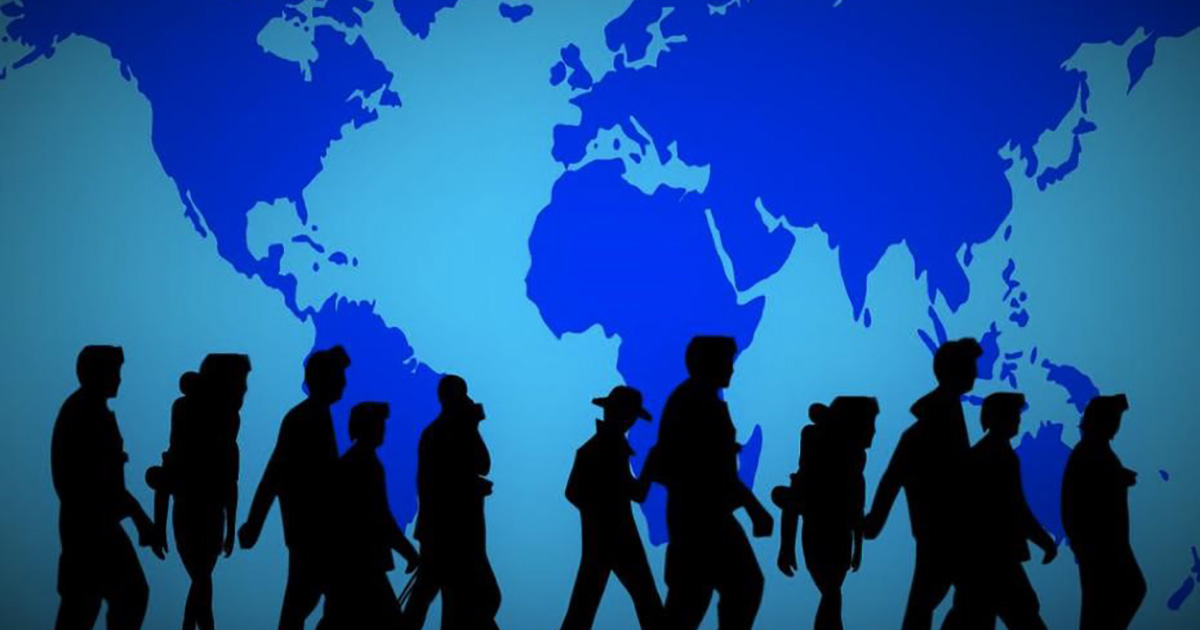Three of the Vincentian NGOs at the United Nations are members of the Civil Society Committee of Migration. We were very involved in the discussions of the Global Compact on Migration at the United Nations that was signed last December to adopt the Global Compact for safe, orderly and regular migration.
This summer I was invited to participate in several meetings to discuss strategies to assist the now millions of Venezuelan migrants in Latin America. The last meeting, I attended was in Ecuador. I was invited to speak to CLAMOR a network of the conference of Bishops, the conference of Consecrated Life, Caritas Internationalis, the Jesuits and the Scalabriny Sisters.
CLAMOR is a word with the same meaning in English and Spanish. This word expresses very well the situation that millions of migrants are undergoing right now across the world. When we look at the dramatic situation of Venezuelan migrants, we cannot forget the migrants of Africans countries trying to get into Europe and the Migrations from Central and South America towards the southern border of the United States or the many ways of the Asian and middle east migrations.
Some thinkers have called this “The Era of Migrations.” In his book, Towards a Theology from the Reality of Migrations, Gioacchino Campese invite us to see and interpret this sign of the times and to act accordingly from the perspective of the many charisms in the church. I witnessed with joy and hope the new alliance that was stablished in Ecuador among the Daughters of Charity and the Scalabrinian Sisters to work together with Venezuelan migrants integrally. The Daughters of Charity , not only will provide two big abandoned houses with very good capacity but also some of the sisters will work alongside with the Scalabrinian sisters who are fully dedicated from their beginnings to work with migrants in many roads, borders and terminals, and centers of attention in many places of the world. It is clear to me that from the cries of the migrants God is calling us. For this reason, I was so excited when I learned too that the two provinces of the Vincentians in US decided to open a house in el Paso Texas to work with migrants.
From the perspective of our spirit and our common charism we cannot ignore or be indifferent when we hear the cries of migrants… they are claiming for the recognition as human beings, for a community that rejects exclusion, discriminatory distinction between “we, citizens” and “they, foreigners” or, worse, “illegal aliens,” as stated in States United, or the “extra-community,” as they say in Europe. Migrants are also calling for an end to bloodshed in the roads and borders, the commodification of migration, the systematic violation of their rights, the detentions, the separation from their children, the illegal retention of their documents, and the hypocritical use made of them by companies that left them alone when they are identified by the migration authorities. Monsignor Romero once said talking about the Salvadorian migrants in Canada and the United States: “we are human beings too, please don’t see in us a threat, we are your brothers and sisters in God’s eyes.”
We will continue our migration advocacy at the United Nations as we invite and encourage the members of the Vincentian Family to open their hearts and minds to what can be a transforming possibility to our natural Vincentian merciful praxis.
In our approach to this world of migrants we need to have clear:
- The Humanity of the Migrant, a person who never loses his/her rights. This recognition is non-negotiable. This is a place where we stand and from where we do not move when we do political advocacy, promote systemic change, or assist migrants with charitable works.
- This is a Global Phenomenon: blunt example of the consequences of the economic globalization. Migrations are a reality that touches from the great metropolises to the most remote towns of our societies in all countries on earth. There are not fluxes of capital that do not provoke fluxes of human beings.
- This is a Complex Phenomenon because its causes, dynamics and consequences are multiple and contextual, and integrate all dimensions of human reality: individual, family, community, social, cultural, political, religious, economic, national and international. It is important to reject all kinds of simplistic, partisan and unilateral readings of migration. We can help assimilate and handle this phenomenon humanely, since there are those who manipulate and divert it in the name of interests of all kinds, which have nothing to do with the human dignity of migrants which is the place where we stand in this and in all issues.
Our Charism sends us to be elbow to elbow with the most abandoned of our society. Today migrants are among those more abandoned, discriminated against, persecuted in our global society. Indifference on our part will make us accomplices of what is happening to them, our brothers and sisters in this unique human family.






0 Comments